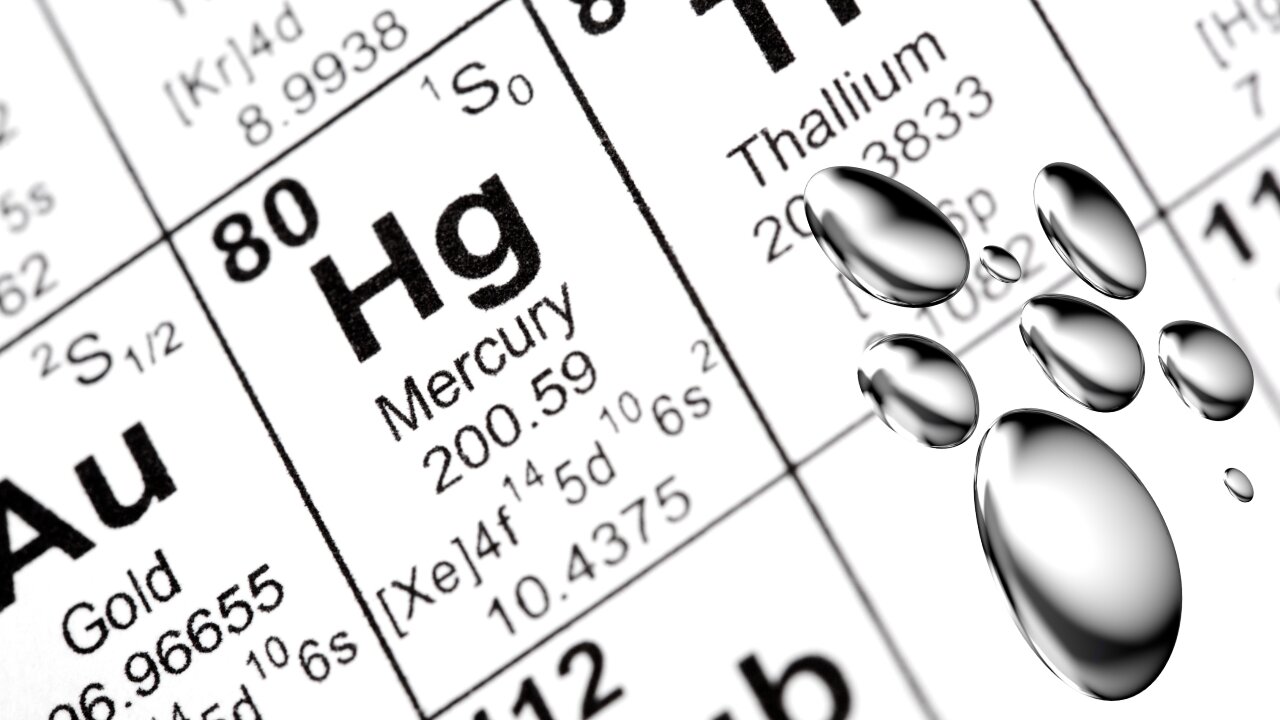Premium Only Content

Heavy Metal Toxicity and Organ Systems
https://www.holistichealthonline.info/product/heavy-metals-herbal-detox/
If you or someone you know suffers from any of these conditions, heavy metal toxicity should be ruled out.
Cardiovascular disease, diabetes, autoimmune disease, cancer, neurological disease, reproductive diseases like infertility, ADHD, autism, depression, and anxiety.
So how does the body actually process and eliminate chemicals and toxins, including heavy metals and radioactive particles?
And not just the airborne nano particulates from practices like chemtrails and industry, we're also ingesting food with chemicals and toxins.
So do they go into the blood?
Yes. But not for long.
The body in its wisdom keeps the blood in a perfect homeostatic condition because this is vital to the brain and heart. Toxins get shuttled out of the blood quickly. And get stored in organs and other structures.
You can get an idea of the different systems of the body in the illustration.
So for example, when heavy metals accumulate in the brain, this affects neurons. Symptoms of toxicity may present as depression, mood disorders, or Alzheimer's.
The reason we know these facts is because we have brain autopsy results.
If toxins accumulate in the liver, this may affect the normal detoxification processes of the cells which are eliminating waste all the time.
Lead mercury and pollutants called PCBs or polychlorinated biphenals can cause non alcoholic fatty liver disease.
If toxins accumulate in the muscle cells, they can block energy pathways, lowering cellular energy and create symptoms like those of fibromyalgia and chronic fatigue.
Heavy metal toxicity can also contribute to autoimmune diseases, like arthritis, lupus, MS, Crohn's, etc.
The kidney is the main organ affected by chronic cadmium exposure and toxicity.
Cadmium is considered more toxic than either lead or mercury.
Aluminum toxicity is a systemic disorder observed in hemodialysis patients and occasionally in non dialysis patients who have severe chronic kidney disease.
The heart is particularly susceptible to toxic stress. Some studies have demonstrated people with heart disease have high levels of mercury at the heart, and heavy metals certainly interfere with normal electrical activity of the heart.
During the day when we're exposed to sunlight, the pineal gland builds up supplies of a substance called sulfate.
At night, this gland produces melatonin, which delivers the sulfate to the neurons in the central nervous system during sleep. In this way, melatonin regulates sleep and wakefulness.
The pineal gland is not protected by what we call the blood brain barrier and has a very high blood perfusion rate, making this gland particularly susceptible to aluminum and other heavy metals.
One of the consequences of insufficient sulfate in the brain is that it impairs the brain's ability to eliminate heavy metals and other toxins.
These same toxic metals also interfere with making sulfate.
-
 10:17
10:17
Dermatologist Dr. Dustin Portela
1 day ago $10.07 earnedOlay Cleansing Melts: Dermatologist's Honest Review
69.8K3 -
 1:02:20
1:02:20
Trumpet Daily
2 days ago $28.93 earnedObama’s Fake World Comes Crashing Down - Trumpet Daily | Dec. 20, 2024
45.1K39 -
 6:29
6:29
BIG NEM
23 hours agoCultivating God Mode: Ancient Taoist NoFap Practices
36.9K9 -
 30:53
30:53
Uncommon Sense In Current Times
1 day ago $8.86 earned"Pardon or Peril? How Biden’s Clemency Actions Could Backfire"
56.3K4 -
 40:01
40:01
CarlCrusher
21 hours agoSkinwalker Encounters in the Haunted Canyons of Magic Mesa - ep 4
52.4K2 -
 59:44
59:44
PMG
1 day ago $6.77 earned"BETRAYAL - Johnson's New Spending Bill EXPANDS COVID Plandemic Powers"
58.7K22 -
 6:48:50
6:48:50
Akademiks
19 hours agoKendrick Lamar and SZA disses Drake and BIG AK? HOLD UP! Diddy, Durk, JayZ update. Travis Hunter RUN
180K30 -
 11:45:14
11:45:14
Right Side Broadcasting Network
9 days agoLIVE REPLAY: TPUSA's America Fest Conference: Day Three - 12/21/24
363K28 -
 12:19
12:19
Tundra Tactical
19 hours ago $13.27 earnedDaniel Penny Beats Charges in NYC Subway Killing
76.7K14 -
 29:53
29:53
MYLUNCHBREAK CHANNEL PAGE
1 day agoUnder The Necropolis - Pt 1
165K67